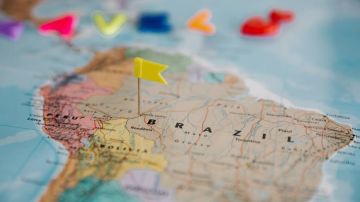Brazil’s Census Now Includes Black Communities in Quilombos
For the first time in its 132-year history, Brazil’s census now will now count members of the quilombo communities founded by runaway slaves, Reuters reported

Photo: Pexels/ Lara Jameson:
For the first time in its 132-year history, Brazil’s census now will now count members of the quilombo communities founded by runaway slaves, Reuters reported. In an effort to resist forced labor, they founded these isolated communities in remote areas over centuries. The chance to be counted in the census is a step in political transformation that local organizers in Ilha de Mare, an island off the coast of northeast Brazil with a large quilombo population, have been fighting for. For the people of Ilha de Mare, this push for inclusion is a strategy for escaping the intentional erasure of quilombos on the island, where 93 percent of the population identifies as Black. More recently the government’s Brazil Quilombola Program has mapped more than 3,500 communities, Al Jazeera reported.
This update in the census and the rising number of Black candidates in Brazil are indicative of a gradual reckoning with the country’s long history of slavery, which only ended there in 1888, making it the last country in the Americas to abolish the crime. Slavery in Brazil lasted for 300 years with some 4 million Africans brought to the country.
Quilombo residents hope that with a proper count of their numbers and more elected voices, social services will improve and rights for people and places usually left off official maps will be guaranteed. CONAQ, the national quilombo association, has identified around 6,000 quilombo territories, Reuters reported. According to CONAQ head Antonio Joao Mendes, government recognition of quilombo communities progressed significantly under Brazil’s former president, Luiz Inacio Lula da Silva, when they were granted more formal land rights and support for cultural programs.
Unfortunately, that progress was stifled under incumbent President Jair Bolsonaro. Several cultural programs were discontinued, and recognition for additional quilombos slowed. In 2017, he was fined 50,000 reais ($10,000) for saying that quilombo residents “do nothing” and “are not even good for procreating.” However, an appeals court threw out the case since he was a federal lawmaker at the time of his comments. Bolsonaro has come under fire in the past for failing to protect Indigenous people’s rights and is believed to have played a role in the increase of Indigenous murders in 2020.
Quilombos on Ilha de Mare have survived for generations thanks to the hard work of artisanal fishers. Women gather in the afternoons to scrape meat from crabs and clams while others weave traditional straw baskets. In the evenings, neighbors gather for dance or gymnastics classes by the shore. However, fishing communities say pollution from a nearby petrochemical port across the bay is threatening their livelihoods.
“Being part of the census is a strategy for us, a strategy for resistance and change,” 52-year-old Marizelha Carlos Lopes, a local activist and fisherwoman on the island, told Reuters. “One of our objectives is to escape an intentional invisibility.”

















